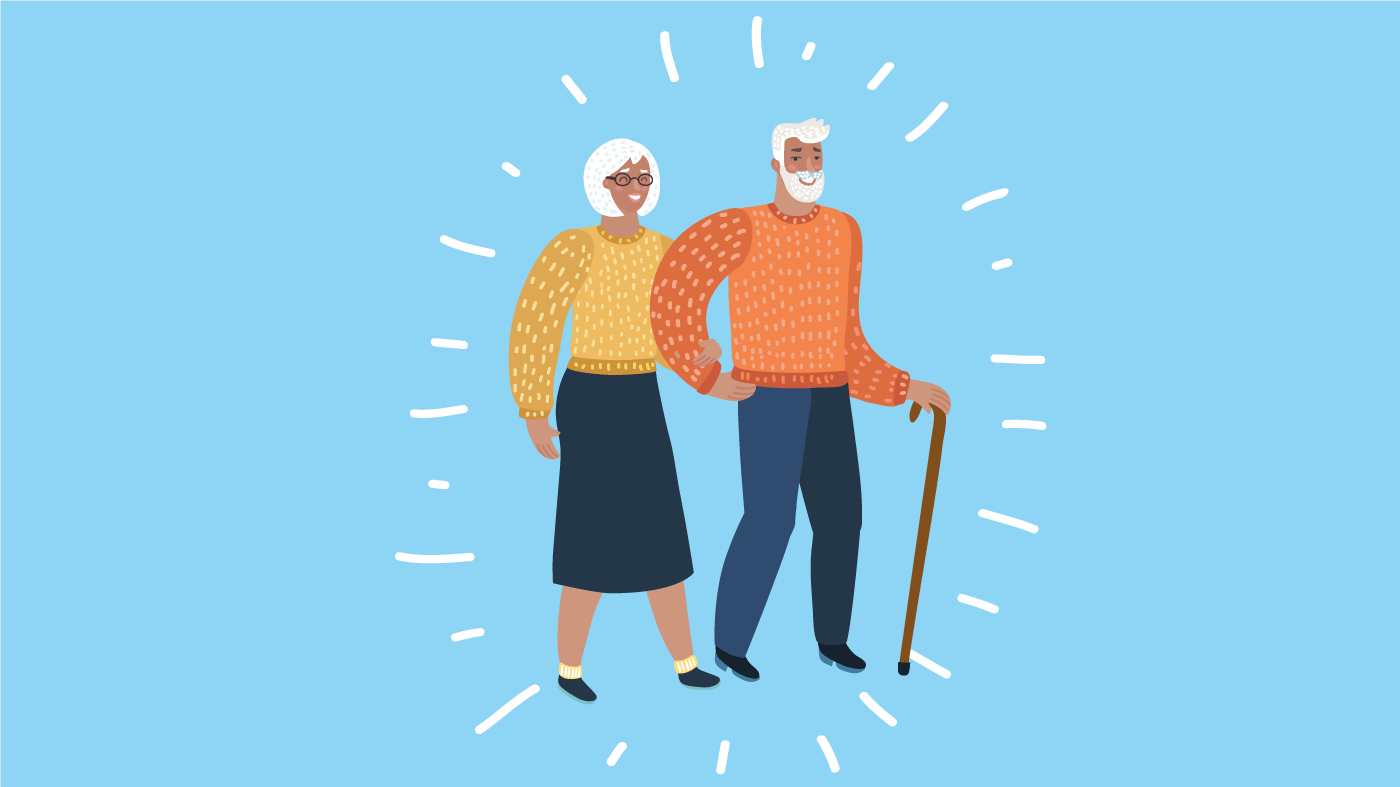Starting at what is commonly called middle age, operations of the human body begin to be more vulnerable to daily wear and tear; there is a general decline in physical, and possibly mental, functioning. In the Western countries, the length of life is often into the 70s. The upward limit of the life span, however, can be as high as 120 years. During the latter half of life, an individual is more prone to have problems with the various functions of the body and to develop any number of chronic or fatal diseases. The cardiovascular, digestive, excretory, nervous, reproductive and urinary systems are particularly affected. The most common diseases of aging include Alzheimer’s, arthritis, cancer, diabetes, depression, and heart disease.
Description
Human beings reach a peak of growth and development around the time of their mid 20s. Aging is the normal transition time after that flurry of activity. Although there are quite a few age-related changes that tax the body, disability is not necessarily a part of aging. Health and lifestyle factors together with the genetic makeup of the individual, and determines the response to these changes.
Causes and symptoms
There are several theories as to why the aging body loses functioning. It may be that several factors work together or that one particular factor is at work more than others in a given individual.
A.Programmed senescence, or aging clock, theory: The aging of the cells of each individual is programmed into the genes, and there are a preset number of possible rejuvenations in the life of a given cell. When cells die at a rate faster than they are replaced, organs do not function properly, and they are soon unable to maintain the functions necessary for life.
B.Genetic theory: Human cells maintain their own seed of destruction at the level of the chromosomes.
C.Connective tissue, or cross-linking theory: Changes in the makeup of the connective tissue alter the stability of body structures, causing a loss of elasticity and functioning, and leading to symptoms of aging.
D.Free-radical theory: The most commonly held theory of aging; it is based on the fact that ongoing chemical reactions of the cells produce free radicals. In the presence of oxygen, these free radicals cause the cells of the body to break down. As time goes on, more cells die or lose the ability to function, and the body soon ceases to function as a whole.
E.Immunological theory: There are changes in the immune system as it begins to wear out, and the body is more prone to infections and tissue damage, which may finally cause death. Also, as the system breaks down, the body is more apt to have autoimmune reactions, in which the body’s own cells are mistaken for foreign material and are destroyed or damaged by the immune system.
Treatment
For the most part, doctors prescribe medications to control the symptoms and diseases of aging. In the United States, about two thirds of people 65 and over take medications for various complaints. More women than men use these medications. The most common drugs used by the elderly are painkillers, diuretics or water pills, sedatives, cardiac drugs, antibiotics, and mental health drugs.
Estrogen replacement therapy (ERT) is commonly prescribed to postmenopausal women for symptoms of aging. It is often used in conjunction with progesterone. ERT functions to help keep bones strong, reduce risk of heart disease, restore vaginal lubrication, and to improve skin elasticity. Evidence suggests that it may also help maintain mental functions.
Expected results
Aging is unavoidable, but major physical impairment is not. People can lead a healthy, disability free life well through their later years. A well established support system of family, friends, and health care providers, together with focus on good nutrition and lifestyle habits and good stress management, can prevent disease and lessen the impact of chronic conditions.
Alternative treatment
Consumption of a high quality multivitamin is recommended. Common nutritional deficiencies connected with aging include B vitamins, vitamins A and C, folic acid, calcium, magnesium, zinc, iron, chromium, and trace minerals. Since stomach acids may be decreased, it is suggested that the use of a powdered multivitamin formula in gelatin capsules be used, as this form is the easiest to digest. Such formulas may also contain enzymes for further help with digestion.
Hormones
The following hormone supplements may be taken to prevent or to treat various age-related problems. However, caution should be taken before beginning treatment, and the patient should consult his or her health care professional. DHEA improves brain functioning and serves as a building block for many other important hormones in the body. It may be helpful in restoring declining hormone levels and in building up muscle mass, strengthening the bones, and maintaining a healthy heart.
Melatonin may be helpful for insomnia. It has also been used to help fight viruses and bacterial infections, reduce the risk of heart disease, improve sexual functioning, and to protect against cancer. Human growth hormone has been shown to regulate blood sugar levels and to stimulate bone, cartilage, and muscle growth while reducing fat.
Prevention
Preventive health practices such as healthy diet, daily exercise, stress management, and control of lifestyle habits such as smoking and drinking, can lengthen the life span and improve the quality of life as people age. Exercise can improve the appetite, the health of the bones, the emotional and mental outlook, and the digestion and circulation.
Drinking plenty of fluids aids in maintaining healthy skin, good digestion, and proper elimination of wastes. Up to eight glasses of water should be consumed daily, along with plenty of herbal teas, diluted fruit and vegetable juices, and fresh fruits and vegetables with high water content. Because of a decrease in the sense of taste, older people often increase their intake of salt, which can contribute to high blood pressure and nutrient loss. Use of sugar is also increased. Seaweeds and small amounts of honey can be used as replacements. Alcohol, nicotine, and caffeine all have potential damaging effects, and should be limited or completely eliminated from consumption.
A diet high in fiber and low in fat is recommended. Complex carbohydrates, such as whole grains, should replace processed foods. If chewing becomes a problem, there should be an increased intake of protein drinks, freshly juiced fruits and vegetables, and creamed cereals.
(Author is a Medical Practitioner and health columnist)








